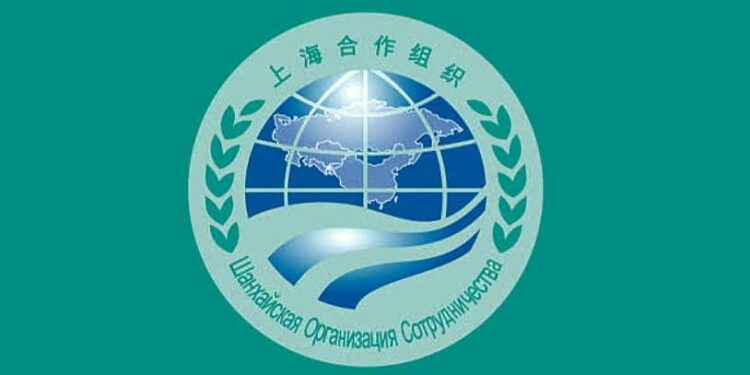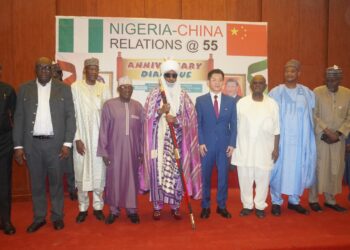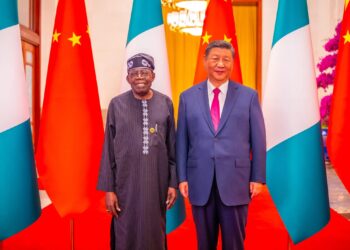As the world grapples with an aggressive imposition of tariffs and turbulent security situations, Global South is on guard, stepping up efforts to ensure stability, maintain economic growth, regional security and harmonious coexistence among the global community with a shared future.
One of the multilateral associations established with the sole aim of ensuring security and economic stability among nations of the global south was Shanghai Cooperation Organisation (SCO).
It was established in 1996, but became fully operational in 2001, with Chinese President Xi Jinping and President Vladimir Putin of Russia as founders of the organisation.
Subsequently, the charter of the SCO was signed in June 2002 and came into action in 2003.
Also, as an organisation, it’s members meet annually on rotational basis to discuss bilateral issues.
China is currently the Chair of the organisation and from August 31 to September 1, is set to host over 20 heads of state and government, including President Putin of Russia, Indian Prime Minister Narendra Modi, President Mosoud Pezheskian of Iran, Prime Minister Shehbaz Sharif of Pakistan, President Kassym Tokayev of Kazakhstan, Alexander Lukashenko of Belarus among other global south leaders.
SCO’s Influence On Global Stage :
Since it’s establishment, SCO continues to grow, with four countries from central Asia joining the organisation almost immediately, to form what was called the “Shanghai Six”.
Today, the SCO comprises ten full member states, four observer states and six dialogue partners from countries of the Eurasia, Middle East and Eastern Europe.
As a platform that promotes global south cooperation, the SCO complements other regional platforms like the Belt and Road Initiative (BRI), BRICS+, Eurasian Economic Union (EEU), Forum on China Africa Cooperation (FOCAC) and China-Arab States Cooperation Forum (CASCF).
According to analysts on global south, SCO is more like a sister organisation to BRICS – this is because most of its founding members and ranking members also belong to the BRICS block.
Expansion And Africa’s Participation :
As the SCO’s size is expanding with mostly Eurasian and Middle Eastern nations, it is imperative for African countries to join the association so that they can leverage on the SCO to strengthen economic and political ties with the influential member states of the organisation like China, Russia and India.
In Africa, only Egypt and Algeria have the status of dialogue partners in SCO.
In fact, Egypt was the first from the continent to participate in the SCO meeting as a dialogue partner.
Already, almost all the African nations are full members of BRI and FOCAC of which China is also a leading partner.
Global South analysts are of the opinion that African countries should not be left behind in an organisation like SCO that is against any form of polarisation and the one that can accommodate every country equally with the spirit of mutual trust, mutual benefit, equality, respect for diverse civilisation and the pursuit of common development.
Participation by African countries could open new economic opportunities, allowing them to access new markets and investments from members states, particularly the central Asian countries that are integral part of SCO.
African countries can also leverage on security and intelligence exchanges on anti-terrorism and bring regional stability and development on the continent.
Nigeria as Potential SCO Partner :
This is another golden opportunity for Nigeria to be part of the growing family of the global south.
The West African nation has a lot to gain by joining SCO.
Also, as largest market in Africa with vibrant economy and largest population on the continent, Nigeria qualifies to be in the elite club of SCO.
It is worthy to note that among the founders of SCO, China in particular is one of the largest trading partner of Nigeria in Africa.
Nigeria is also member of both BRI and FOCAC and BRICS partner nation.
In his determination to strengthen relations with China, President Bola Tinubu on his return from the last FOCAC meeting in Beijing approved the establishment of the Nigeria-China Strategic Partnership (NCSP) and appointed a Director-General to lead the initiative.
The NCSP is tasked with driving strategic collaborations and unlocking investment opportunities between Nigeria and China.
The Partnership between Nigeria and China aims to promote sustainable industrialization, economic diversification, and long-term development, while fostering inclusive, mutually beneficial partnerships that accelerate growth.
Since its inception, the NCSP has hit the ground running, transitioning the bilateral relationship from a predominantly trade-focused engagement to a development-driven strategic alliance.
It is also driving strategic initiatives in line with the Renewed Hope Agenda of Nigeria’s President Bola Ahmed Tinubu.
According to Joseph Tegbe, the Director General of the Nigeria-China Strategic Partnership, “Nigeria’s participation in the SCO will significantly enhance and complement the existing synergy with the current comprehensive strategic partnership with China”, emphasising that Nigeria will immensely benefit from the cooperation.
SCO as Multilateral Unifier :
As a growing multilateral organisation of the global south with less than dozen full members, SCO member states contribute a quarter of the global GDP with over $24.6 trillion, 80 per cent of Eurasian landmass and more than 45 per cent of the world population.
Like other platforms of it’s kind, SCO has over the years transformed into an influential organisation that restructures the international order and makes it more just and pluralistic.
It also encourages development, economic and social cooperation in containing security threats and other forms of terrorism.
Defying Tariff And Sanction Threats :
As over 20 leaders set to converge in Tianjin, China for the association’s summit, China being a leading member of the association, influential global player and world’s second largest economy, has been the main target of Trump’s aggressive tariff regime in his second coming as the President of the United States.
Other leading SCO members too were not spared from the tariff storm and bullying. China has consistently maintained it’s position that it cannot be bullied by tariff imposition.
According to data from the General Administration of Customs of China (GAC) showed that
from January to July 2025, China’s total imports and exports with other SCO members reached 2.11 trillion yuan (about 295.58 billion U.S. dollars), marking a 3-percent increase year on year.
Despite the geopolitical disruption caused by Donald Trump’s trade wars, intergovernmental platforms such as SCO have helped to create an opening for its leading members to come closer and mend their diplomatic and economic relations.
As an analyst of the Global South, I see the Trump’s tarrif as a blessing; as it has brought SCO and BRICS founding member nations closer like never before.
Coming together by these economic and military giants, Trump should worry, as his continuous threat will hurt the American economy more than the effects of his tariff, sanctions and other forms of bullying will do nothing to these $24.6 trillion economies.
His constant warning being railed against them for their plan to spearhead ditching the US dollar may not also see the light of the day.
The world has since moved on with the global south.
*Sale is an Abuja-based Global South Affairs Analyst. He can be reached on: lawalmaida1@yahoo.com *
(vitalnewsngr.com)





















